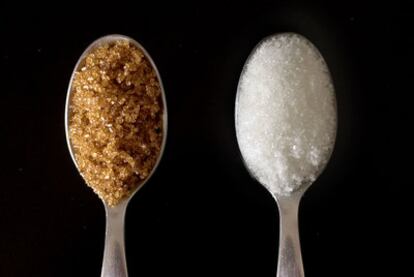Improving Blood Vessel Function in Diabetes Researchers at Jagiellonian University in Poland are helping us understand the biology of vascular cell damage in diabetes
Diabetes is characterized by hyperglycemia, an elevated concentration of sugar, or glucose, in the blood. Elevated blood glucose has a damaging impact on endothelial cells, the thin layer of cells that line the interior surface of blood vessels and form the interface - the endothelium - between circulating blood and the rest of the vessel wall. Endothelial cells line the entire human circulatory system, from the heart to the smallest blood vessel.
Under normal circumstances, endothelial cells are able to metabolize circulating blood glucose, providing the energy that the body needs to function. In hyperglycemia, however, too many glucose molecules in the blood cause endothelial cells to malfunction, damaging the body's circulatory system and resulting in serious complications that can range from kidney failure and heart disease, to blindness. Prolonged hyperglycemia can result in death.
The endothelium has a unique ability to repair and regenerate itself with the help of a group of specialized cells called endothelial progenitor cells (EPCs). Endothelial progenitor cells are found in bone marrow and, in response to a signal from damaged endothelial tissue, are recruited into the bloodstream to help repair an injured vessel. Endothelial progenitor cells can act both directly and indirectly at the site of blood vessel injury by integrating into vessel walls and releasing growth factors that help form new blood vessels at the site of the injury.
In individuals with diabetes, circulating endothelial progenitor cells are exposed to abnormal levels of blood sugar. It has been demonstrated that patients with diabetes not only have fewer endothelial progenitor cells than healthy individuals, but that the function of the endothelial progenitor cells that they do have is impaired.
To investigate the role of elevated blood glucose level on endothelial progenitor cell function, a group of researchers from Jagiellonian University in Poland have been examining the mechanisms and effects of diabetes and anti-diabetic drugs on endothelial progenitor cells.
"There is no question that diabetes has a negative effect on endothelial progenitor cells," says Jerzy Kotlinowski, one of the group's investigators, "but researchers are still not sure why so many mechanisms of EPC function are impaired in diabetes".
The researchers tested the viability of endothelial progenitor cells in mice and found that, after adding glucose to the medium in which the EPCs were being cultured, the cells from diabetic animals were more prone to oxidative stress and cell death than control cells. Glucose also impaired other cell functions, such as their ability to connect with neighbouring cells to form new blood vessels.
"By measuring the number of junctions formed between cells, we found that hyperglycemia impaired the ability of endothelial progenitor cells to form new blood vessels," says Kotlinowski. "The cells from healthy mice formed 40% more junctions than those from diabetic mice."
The Polish researchers then examined how thiazolidinediones, a class of drugs that sensitize cells to insulin, affect the functions of endothelial progenitor cells that were isolated from healthy and diabetic mice.
Among diabetic mice who were fed for two weeks with rosiglitazone - a commonly used anti-diabetic drug - their hyperglycaemia decreased and the capability of their endothelial progenitor cells to migrate improved to the level of control cells. The EPCs obtained from the rosiglitazone-treated diabetic mice were also more resistant to oxidative stress than cells isolated from their untreated counterparts.
"We know that a thiazolidinedione such as rosiglitazone can improve the viability and migration capability of endothelial progenitor cells," says Kotlinowski. "Now we have to look at the biological mechanism of its action on these cells.
"The goal of our research is to better understand the biology of endothelial progenitor cells and use our findings to improve EPC functions. We want to know which pathways are impaired in diabetes and which can be modified pharmacologically.
"Since patients with diabetes suffer from so many vascular complications and diseases, this research is very important. The better endothelial progenitor cells function, the better blood vessels will function. And the better blood vessels function, the healthier individuals with diabetes will be.
Jerzy Kotlinowski, Jagiellonian University in Krakow. www.atomiumculture.eu

Tu suscripción se está usando en otro dispositivo
¿Quieres añadir otro usuario a tu suscripción?
Si continúas leyendo en este dispositivo, no se podrá leer en el otro.
FlechaTu suscripción se está usando en otro dispositivo y solo puedes acceder a EL PAÍS desde un dispositivo a la vez.
Si quieres compartir tu cuenta, cambia tu suscripción a la modalidad Premium, así podrás añadir otro usuario. Cada uno accederá con su propia cuenta de email, lo que os permitirá personalizar vuestra experiencia en EL PAÍS.
¿Tienes una suscripción de empresa? Accede aquí para contratar más cuentas.
En el caso de no saber quién está usando tu cuenta, te recomendamos cambiar tu contraseña aquí.
Si decides continuar compartiendo tu cuenta, este mensaje se mostrará en tu dispositivo y en el de la otra persona que está usando tu cuenta de forma indefinida, afectando a tu experiencia de lectura. Puedes consultar aquí los términos y condiciones de la suscripción digital.




























































